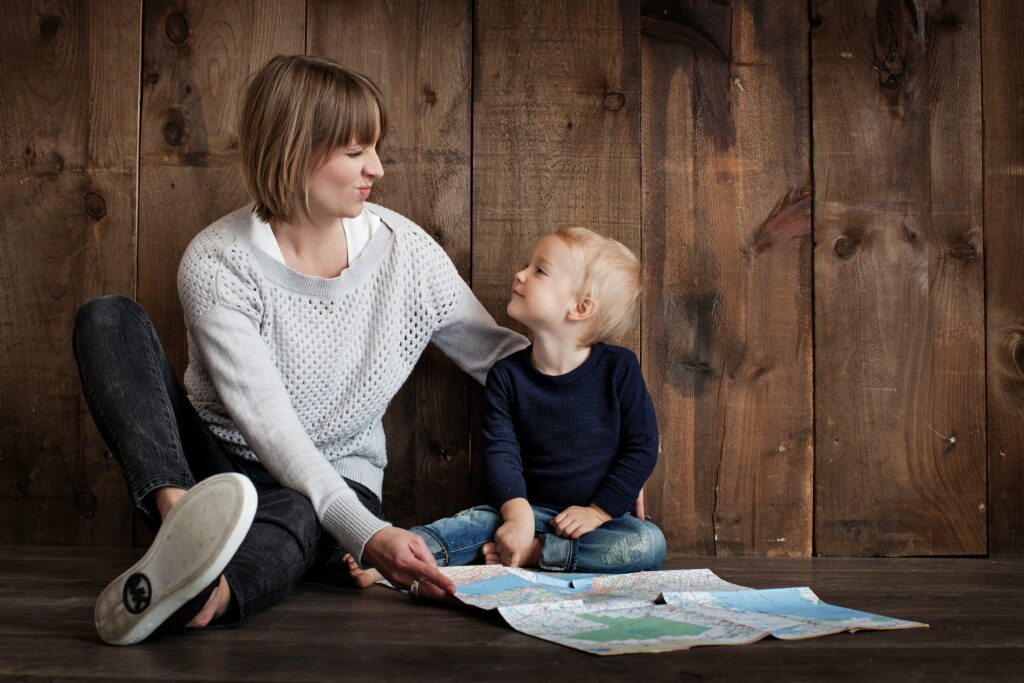Parental importance in today’s rapidly changing world should be our main focus. The concept of family has evolved and taken on various forms. However, amidst these changes, the importance of having both parents in the household remains a crucial aspect of a child’s upbringing. Studies have consistently shown that children thrive when they have the love, support, and guidance of both a mother and a father. In this article, we delve into the significance of having both parents present in a heterosexual household, exploring the positive impact it has on children’s well-being and the dynamics within the family unit.
The presence of both parents in the household plays a vital role in shaping children’s lives, providing a solid foundation for their emotional, social, and overall development.
The Role of Fathers in the Household
Fathers play a significant role in the upbringing of children, contributing to their overall development in unique and valuable ways. Here are some key points highlighting the importance of a father figure in a child’s life:
Importance of a father figure in a child’s life:
- Fathers provide a sense of stability and security within the household, offering a protective presence.
- They often bring a different parenting style, introducing diverse perspectives and experiences that enrich a child’s worldview.
- Father-child relationships contribute to the child’s sense of identity, self-esteem, and gender role development.
Positive impact of fathers on children’s development:
- Fatherly involvement has been linked to improved cognitive development, academic performance, and problem-solving abilities in children.
- Children with actively engaged fathers tend to exhibit better social skills, emotional regulation, and empathy.
- Father-child interactions promote risk-taking, independence, and exploration, fostering resilience and self-confidence.
Examples or research supporting the role of fathers:
- Numerous studies have highlighted the influence of fathers on their children’s emotional well-being. For instance, research by the National Fatherhood Initiative found that children who have involved fathers are more likely to have higher levels of happiness and life satisfaction.
- Additionally, a study published in the Journal of Marriage and Family revealed that children who grow up without fathers are at a higher risk of experiencing behavioral problems, substance abuse, and delinquency.
The role of fathers in shaping children’s behavior and emotional well-being should not be underestimated. Their presence and active involvement create a nurturing environment that positively impacts a child’s growth and development.
The Role of Mothers in the Household
Mothers play an invaluable role in a child’s life, providing nurturing care and shaping their development in profound ways. Here are some key aspects highlighting the importance of a mother figure within the household:

Importance of a mother figure in a child’s life:
- Mothers offer unconditional love, warmth, and emotional support, creating a strong bond with their children.
- They play a vital role in meeting the physical and emotional needs of their children, fostering a sense of security and attachment.
- Mother-child relationships contribute to the development of empathy, communication skills, and emotional intelligence in children.
Unique contributions of mothers in nurturing and caregiving:
- Mothers often excel in creating a nurturing environment, providing a safe space for children to express themselves and explore their emotions.
- They typically take on primary responsibility for daily caregiving tasks, including feeding, bathing, and comforting, establishing routines and stability.
- Mothers are often the primary educators during a child’s early years, shaping their cognitive and linguistic development through interactions and storytelling.
Research or anecdotes highlighting the benefits of maternal involvement:
- Research has shown that children who experience close relationships with their mothers tend to have higher self-esteem, better mental health, and improved social skills.
- Studies have also revealed that maternal involvement is linked to better academic performance, as mothers often engage in educational activities and support their children’s learning.
- Anecdotal evidence often highlights the profound impact of a mother’s presence on a child’s emotional well-being, with many individuals attributing their success and resilience to their mothers’ love and guidance.
The role of mothers in nurturing and caregiving is crucial for a child’s development. Their unique contributions and unwavering dedication create a foundation of love and support that positively shapes children’s lives.
Complementary Roles and Gender Dynamics

Within a heterosexual household, the complementary roles of fathers and mothers form a strong foundation for a child’s upbringing. Understanding and appreciating the unique strengths each parent brings to the table is essential. Here are key points to consider regarding the complementary roles and gender dynamics within parenting:
Exploring the complementary roles of fathers and mothers:
- Fathers often excel in providing discipline, setting boundaries, and promoting independence, which helps children develop resilience and responsibility.
- Mothers, on the other hand, tend to excel in nurturing, emotional support, and fostering strong bonds with their children, creating a secure attachment.
How a father’s strengths complement a mother’s strengths:
- A father’s involvement in parenting introduces different perspectives, problem-solving approaches, and encourages healthy risk-taking, expanding a child’s understanding of the world.
- A mother’s strengths in emotional support and nurturing create a safe and loving environment, ensuring children feel valued, heard, and understood.
Emphasizing the significance of a balanced gender dynamic in parenting:
- Children benefit from witnessing healthy and balanced gender dynamics within the household, as it sets an example for their future relationships and promotes respect and equality.
- A balanced gender dynamic allows children to learn from diverse parenting styles, providing a broader range of experiences and perspectives to shape their worldview.
When fathers and mothers work together in a complementary manner, drawing on their individual strengths, children receive a well-rounded and enriching upbringing. It is the harmonious collaboration of these unique roles that contributes to the holistic development of children, fostering a nurturing environment where they can thrive.
Stability and Support in a Heterosexual Household
A stable and supportive family environment is essential for children’s overall well-being and development. In a heterosexual household with both parents present, the foundation of stability and support is strengthened. Here are some key points highlighting the importance of stability and the benefits of a two-parent heterosexual household:
Discussing the stability and support provided by a heterosexual household:
- A stable household provides children with a consistent routine, structure, and a sense of security, fostering emotional stability and reducing stress.
- Having both parents present in the household allows for a division of responsibilities, ensuring a more balanced approach to child-rearing, household management, and financial support.
The importance of a stable family environment for children’s overall well-being:
- Research consistently demonstrates that children raised in stable family environments exhibit better academic performance, higher self-esteem, and improved mental health.
- Stability within the household creates a nurturing space where children can develop healthy relationships, build resilience, and cope with life’s challenges more effectively.
Research or studies demonstrating the benefits of a two-parent heterosexual household:
- Numerous studies indicate that children growing up in two-parent heterosexual households are more likely to experience positive outcomes in areas such as educational attainment, emotional well-being, and social development.
- Research published in the Journal of Marriage and Family has shown that children from such households are less likely to engage in risky behaviors or experience behavioral problems.
A two-parent heterosexual household provides a stable and supportive environment that promotes children’s overall well-being. The presence of both parents offers emotional, practical, and financial support, laying the groundwork for children to flourish and reach their full potential.
Impact on Children’s Emotional and Social Development
The presence of both parents in a heterosexual household has a profound impact on children’s emotional and social development. Here are key points to consider regarding the positive influence of dual-parent involvement:
How the presence of both parents positively affects children’s emotional development:
- Children who have both parents present in their lives tend to experience greater emotional stability and resilience.
- The emotional support provided by both parents helps children develop a secure attachment style, fostering healthy relationships and enhancing their overall emotional well-being.
- Having two parents allows for a broader range of emotional expressions and perspectives, enabling children to learn effective emotional regulation and empathy.
The influence of parental modeling on children’s social skills and relationships:
- Parents serve as role models for their children, and the presence of both parents offers diverse modeling of social skills, communication styles, and conflict resolution strategies.
- Dual-parent involvement provides opportunities for children to observe healthy gender dynamics and develop a balanced understanding of gender roles.
- Through parental modeling, children learn how to form and maintain healthy relationships, navigate social interactions, and develop crucial life skills.
Examples or studies highlighting the positive outcomes associated with dual-parent involvement:
- Research published in the Journal of Family Issues found that children raised in households with both parents had higher levels of social competence and exhibited fewer behavioral problems.
- A study published in Child Development revealed that children with involved fathers had better peer relationships and higher levels of empathy compared to those with limited father involvement.
- Anecdotal evidence often points to the positive impact of having both parents actively engaged in a child’s life, leading to improved self-confidence, emotional intelligence, and social adaptability.
The presence of both parents in a heterosexual household enhances children’s emotional development, equips them with essential social skills, and sets the stage for healthy and fulfilling relationships in the future. The combined influence of both parents creates a supportive environment where children can thrive socially and emotionally.
Bottom Line
In this article, we have explored the importance of having both parents present in a heterosexual household and its significant impact on children’s growth and development. Let’s recap the main points discussed:
- Fathers play a crucial role in children’s lives, bringing stability, diverse perspectives, and positive behavioral influence.
- Mothers provide nurturing care, emotional support, and contribute to children’s overall well-being.
- The complementary roles of fathers and mothers create a balanced parenting dynamic, enriching children’s upbringing.
- A stable and supportive family environment in a heterosexual household fosters emotional well-being and promotes positive outcomes.
- Dual-parent involvement influences children’s emotional and social development, shaping their relationships and social skills.
- Studies and anecdotes consistently highlight the positive outcomes associated with having both parents actively engaged in a child’s life.
It is clear that having both parents in the household, within a heterosexual context, is crucial for children’s growth and well-being. To ensure children have the best possible upbringing, it is essential to prioritize and support heterosexual households. By fostering an environment that values and promotes the involvement of both parents, we can provide children with the stable foundation they need to thrive.
As we conclude, let us recognize the immense impact that both mothers and fathers have on their children’s lives. Let us encourage and support families in embracing the importance of having both parents present, as they contribute to children’s emotional, social, and overall development. By nurturing strong heterosexual households, we empower future generations with the tools they need to succeed, fostering healthy individuals and communities.
Together, let us prioritize and celebrate the value of having both parents in the household for the well-being and flourishing of our children.
















































